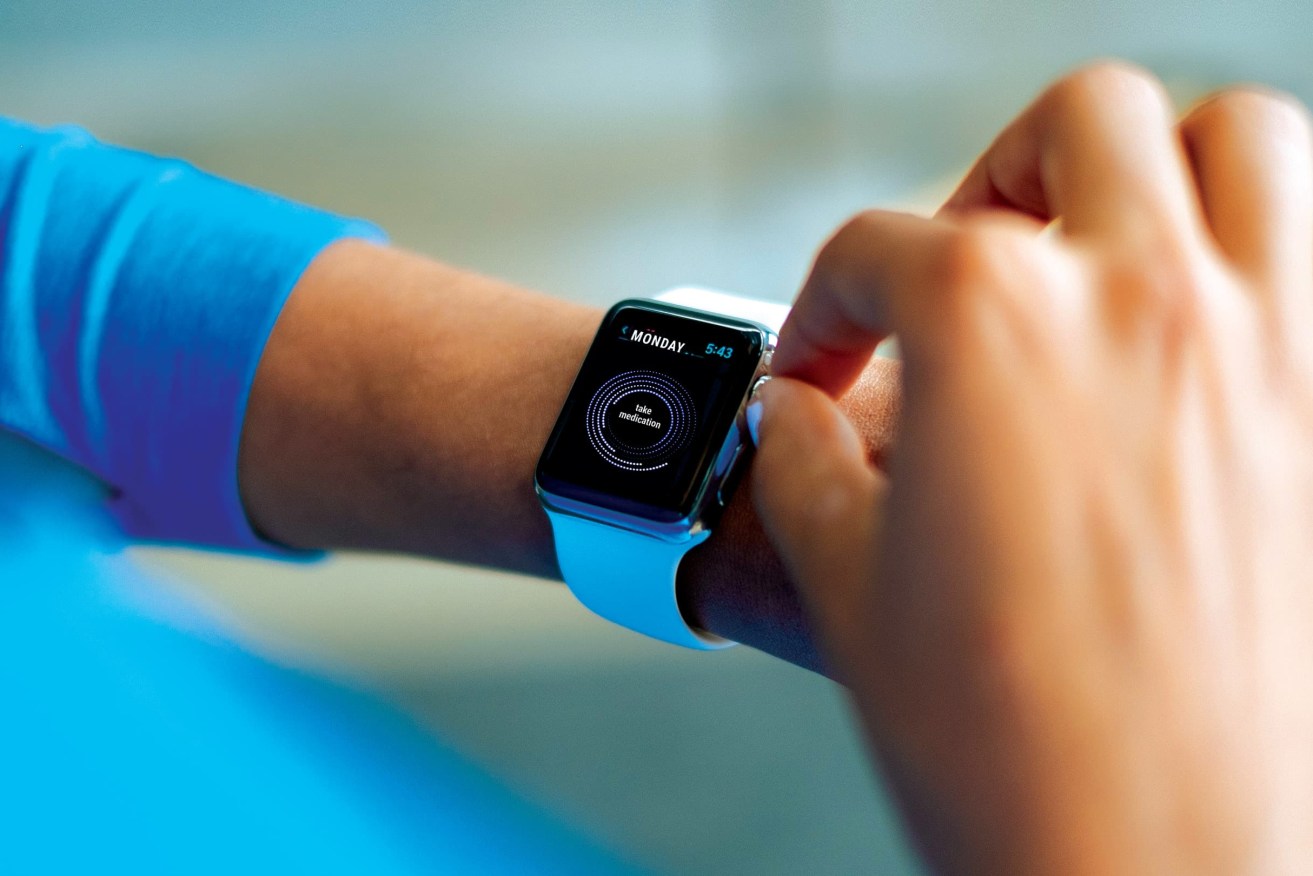
The future of Health Care is Digital
We might not be consulting robot doctors just yet, but Flinders University researchers understand that new technologies are revolutionising the way healthcare is delivered.

It’s an edgy new frontier, as the term ‘digital health’ can arouse either hopes or fears. For some, it promises individually tailored treatments delivered via your smartphone. For others, it raises fears of government surveillance, health data being sold to the highest bidder, and everyone from your employer to the police knowing when you last contracted a minor infection.
In navigating the future challenges and opportunities of using information technology in healthcare delivery, Associate Professor Niranjan Bidargaddi at the Flinders Digital Health Research Centre has completed a study on using smartwatches and phone apps to correlate users’ physical activities with their mental health. If a patient’s behaviour seemed unusual – for example, if they sat at home all day instead of going out, or they experienced altered sleep patterns – this would trigger an intervention.
“They might not be Facebooking their buddies so much, or they might be sending sombre emails. If you can deduce those things and intervene in time, that’s very beneficial,” says Professor Anthony Maeder, Co-Director of the Centre and Chair in Digital Health Systems.
You can’t replace the brain, but you can give people tools to fill the gap that the memory loss is causing – the same as you can give someone who’s lost a leg an artificial limb.
One of Professor Maeder’s projects is the Flinders Assistant for Memory Enhancement (FAME), which is open to participants aged over 65 who are starting to lose their memory. Combining brain-training exercises, an interactive calendar, and a contacts list, FAME is an iPad app that combats the most common effects of memory loss.
“You can’t replace the brain, but you can give people tools to fill the gap that the memory loss is causing – the same as you can give someone who’s lost a leg an artificial limb,” Professor Maeder explains.
The common theme across these studies is finding new ways to empower patients to help themselves. Flinders cardiologist Professor Derek Chew says this is critical. “The digital revolution is going to democratise medicine and allow us to build models of care around more accurate clinical decision-making and patient-directed clinical decision-making,” says Professor Chew.
“Healthcare is all about IT. It’s about getting the right information to the right person to make the right decision. That’s where I think the evolution – and revolution – of medicine will be. It’s in how we bring more valuable, more precise, more predictive information to the person who is making a decision.”
That person could be a doctor, a nurse, or even the patient. With increased precision in tests for imminent heart attacks, along with swifter results and the use of artificial intelligence in the interpretation of those results, Professor Chew predicts that the one-size-fits-all approach is on its way out.
“The ambulance or GP would get your test results back, and tell you, ‘We think you have a less than 1% chance of having a heart attack. Do you still want to go to hospital?’ We’ll take them to hospital if they want to go, and follow up with those who don’t. But it’s potentially safer, cheaper care,” he says.
Data is at the base of all these applications and will inform more accurate diagnosis – due to the emergence of machine learning that can read test results better than junior doctors and improve the studies that online tools are based on.
Public trust in the use of such data has a long way to go, but Professors Maeder and Chew believe that education is the key to acceptance, and they’re confident that acceptance will come once people see the benefits of electronic health records.
“Digital health technology is already here, and you can deduce better ways to treat subgroups of patients by observing the data on their health condition and their recovery,” says Professor Maeder. “You can also deliver interventions by IT to patients, because if the computer knows about them as a patient, then it can customise how it’s going to advise them, say, to improve their physical activity.”
More details of Flinders University’s research outcomes can be found on the Brave Minds website.




